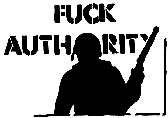Political Economy of Power
The Political Economy of Power
For far too long the issue of energy has been put to one side, treated as if it had no influence on how South African society is shaped. And there has been a stereotype, somewhat valid, that within civil society energy has been the domain of white environmentalists - aging hippies in sandals going shoo-wah over the teachings of the Dalai Lama (R299 at Rosebank Mall) and speaking about how we all must conserve electricity, how we all must make sacrifices, whilst black children die in shack fires caused from having to use a paraffin stove because the household electricity lifeline was used up weeks ago.
The generation and distribution of power (primarily electricity) does not happen in a political vacuum, it cannot be divorced from the social and economic conditions under which most South Africans labour and starve. In fact, as I will attempt to explain, the generation and distribution of power is both informed on and informed by the social, economic and political realms.
Energy-generation and distribution is a murky topic. Omission, falsehood and deception surround the use of light switches, refrigerators, irrigation pumps and industrial smelters. Misinformation is pumping out faster and harder than a “six-pack” power station spews out SO2 and CO2.
Who, then, is deceiving us? There are the usual suspects: coal mining companies, government, oil cartels, Eskom, and other assorted free-market robber barons. There are also the traditional flag-carriers of the centrally planned economy. And there’s also the environmental movement, which has traditionally refused to see past the forest to glimpse human misery and suffering. Without fail, the one lie that all of the above seem to propagate is that there is an energy shortage. It goes something like this:
Since we can only generate x amount of power and the practical demand of each and every user is greater than x, x will have to be allocated. Of course, someone will have to make this allocation, and this someone is the state. The state, as a supposed neutral actor and invested with, to quote Max Weber, “a successful claim on monopoly of the legitimate use of force”, will decide that industry will get so much power, agriculture so much, and residential users so much. The best allocation of resources will be on the basis of what is deemed in the best interest of the common good. It may be unfortunate that not all of us get the power we want, but that’s life and sacrifices have to be made.
This story is sly and deceiving. To start with, there is no energy shortage in the universe. The universe is awash with energy (all there is, after all, is energy and matter), and energy can neither be destroyed nor created. For the purposes of the human race, there is a virtually unlimited amount of energy for the species to tap into....
Go here for more.
Labels: Activism




0 Comments:
Post a Comment
Subscribe to Post Comments [Atom]
<< Home